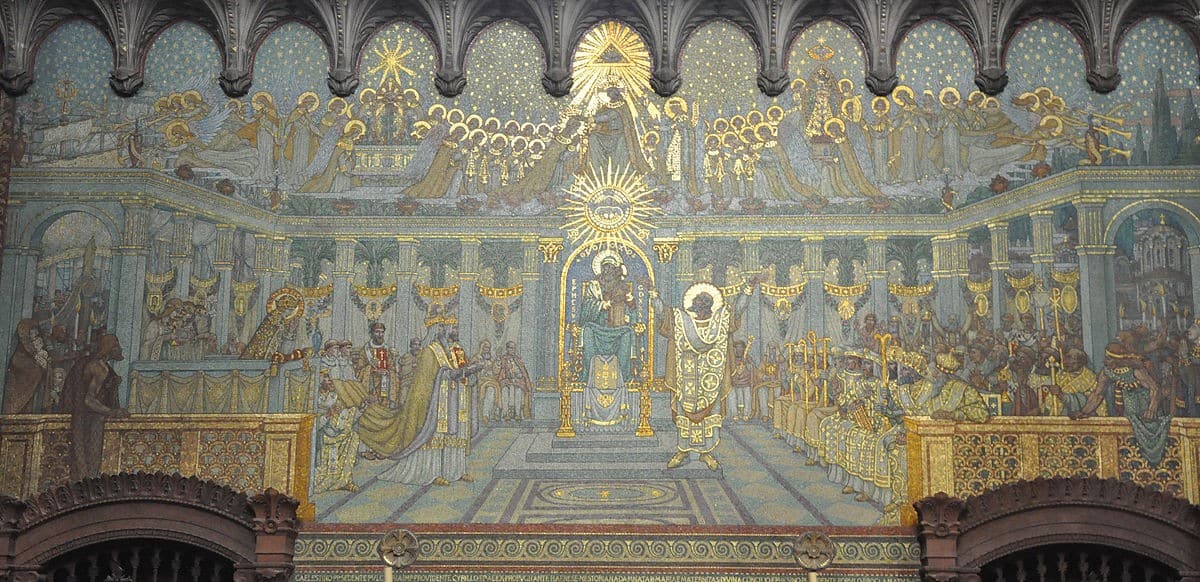The Council of Ephesus is the third ecumenical council, after those of Nicaea (325) and Constantinople (381), accepted by the Armenian Church. It was held over several sessions in 431 at the Church of Mary in Ephesus, Asia Minor (nowadays western Turkey).
The council was called after Patriarch Cyril of Alexandria appealed Pope Celestine I to condemn Patriarch Nestorius of Constantinople for heresy due to the latter’s refusal to use the term theotokos (Mother of God) in relation to the Virgin Mary. Nestorius convinced Emperor Theodosius II (408-450) of Byzantium, who had appointed him, to hold an empire-wide council to resolve the matter. In addition to its theological dimensions, the Council of Ephesus is often viewed as a manifestation of the power struggle between the Christian schools of Alexandria (Cyril) and Antioch (Nestorius), as well as between the authority of Rome and Constantinople.
Nestorius emphasized the true humanity, as well as the divinity of Jesus by insisting that Mary, the mother of Jesus, gave birth to Christ, not God himself. He used the term christotokos (Christ-bearer) for Mary rather than theotokos. He further insisted that only Christ, not God, died on the Cross. Cyril and his supporters objected to making such distinctions between the divine and human natures of Jesus.
The composition of the council was heavily disputed due to Cyril’s opening of it on June 22, 431, without a major delegation of bishops from Antioch being present who would have supported Nestorius. As a result, Patriarch John of Antioch soon held a competing council which condemned Cyril and his supporters. The proceedings were conducted in a heated atmosphere of confrontation and recrimination.
Cyril’s council, which condemned Nestorius with a sentence signed by 198 bishops, was ultimately accepted by the emperor and confirmed by the pope, but its pronouncements resulted in the Nestorian schism and the separation of the Assyrian Church of the East from the Eastern Orthodox Church. The council is accepted as ecumenical by the Oriental Orthodox, Eastern Orthodox, Roman Catholic, and some traditional Protestant churches.
The Armenian Church did not participate in the Council of Ephesus, but it accepted its authority. According to the testimonies of Koriun, biographer of Mesrop Mashtots, and historian Movses Khorenatsi, an assembly of the Armenian Church gathered by Catholicos Sahak I Partev and Mesrop Mashtots at Ashtishat (435) approved the six canons and resolutions of the council.

